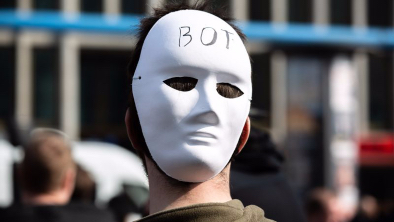Social scientists battle bots to glean insights from online chatter

Social-media bots that pump out computer-generated content have been accused of swaying elections and damaging public health by spreading misinformation. Now, some social scientists have a fresh accusation: bots meddle with research studies that mine popular sites such as Twitter, Reddit and Instagram for information on human health and behaviour.
Data from these sites can help scientists to understand how natural disasters affect mental health, why young people have flocked to e-cigarettes in the United States and how people join together in complex social networks. But such work relies on discerning the real voices from the automated ones.
“Bots are designed to behave online like people,” says Jon-Patrick Allem, a social scientist at the University of Southern California in Los Angeles. “If a researcher is interested in describing public attitudes, you have to be sure that the data you’re collecting on social media is actually from people.”
Computer scientist Sune Lehmann designed his first bots in 2013, as a social-network experiment for a class that he was teaching at the Technical University of Denmark in Kongens Lyngby. Back then, he says, bots on Twitter were simple, obscure and mainly meant to increase the number of followers for specific Twitter accounts. Lehmann wanted to show his students how such bots could manipulate social systems, so together they designed bots that impersonated fans of the singer Justin Bieber.
Read the full article here.
